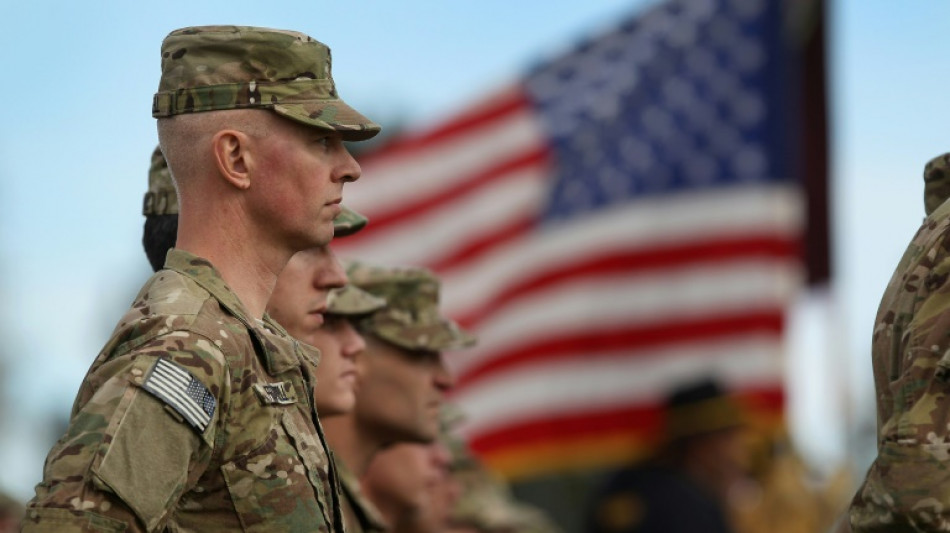
-
 Munich's surfers stunned after famed river wave vanishes
Munich's surfers stunned after famed river wave vanishes
-
Iran commemorates storming of US embassy with missile replicas, fake coffins

-
 Gauff sweeps Paolini aside to revitalise WTA Finals defence
Gauff sweeps Paolini aside to revitalise WTA Finals defence
-
Shein vows to cooperate with France in probe over childlike sex dolls

-
 Young leftist Mamdani on track to win NY vote, shaking up US politics
Young leftist Mamdani on track to win NY vote, shaking up US politics
-
US government shutdown ties record for longest in history

-
 King Tut's collection displayed for first time at Egypt's grand museum
King Tut's collection displayed for first time at Egypt's grand museum
-
Typhoon flooding kills over 40, strands thousands in central Philippines

-
 Trent mural defaced ahead of Liverpool return
Trent mural defaced ahead of Liverpool return
-
Sabalenka to face Kyrgios in 'Battle of Sexes' on December 28

-
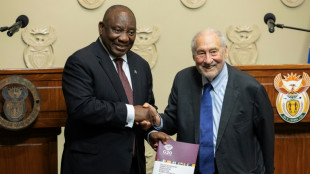 Experts call for global panel to tackle 'inequality crisis'
Experts call for global panel to tackle 'inequality crisis'
-
Backed by Brussels, Zelensky urges Orban to drop veto on EU bid
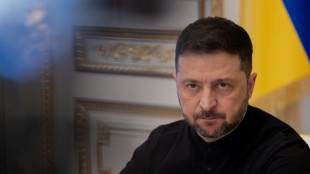
-
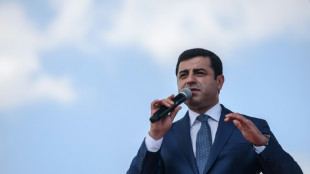 After ECHR ruling, Turkey opposition urges pro-Kurd leader's release
After ECHR ruling, Turkey opposition urges pro-Kurd leader's release
-
UK far-right activist Robinson cleared of terror offence over phone access

-
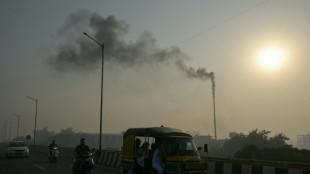 World on track to dangerous warming as emissions hit record high: UN
World on track to dangerous warming as emissions hit record high: UN
-
Nvidia, Deutsche Telekom unveil 1-bn-euro AI industrial hub

-
 Which record? Haaland warns he can get even better
Which record? Haaland warns he can get even better
-
Football star David Beckham hails knighthood as 'proudest moment'
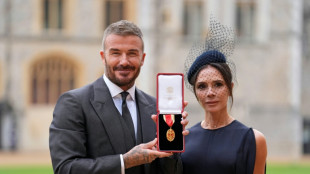
-
 Laurent Mauvignier wins France's top literary award for family saga
Laurent Mauvignier wins France's top literary award for family saga
-
Indian Sikh pilgrims enter Pakistan, first major crossing since May conflict

-
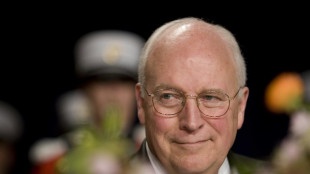 Former US vice president Dick Cheney dies at 84
Former US vice president Dick Cheney dies at 84
-
Fiorentina sack Pioli after winless start in Serie A

-
 Oscar-winning Palestinian films daily 'Israeli impunity' in West Bank
Oscar-winning Palestinian films daily 'Israeli impunity' in West Bank
-
Spain's Telefonica shares drop on dividend cut, net loss

-
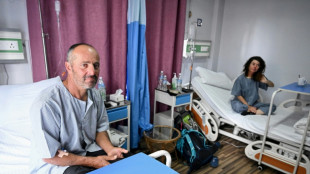 Fierce mountain storms kill nine in Nepal
Fierce mountain storms kill nine in Nepal
-
Divisive Czech cardinal Dominik Duka dies at 82

-
 Shein vows to cooperate with France in sex doll probe
Shein vows to cooperate with France in sex doll probe
-
EU in last-ditch push to seal climate targets before COP30
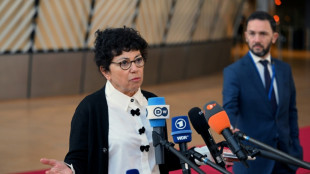
-
 Finnish ex-PM Marin says her female cabinet faced torrent of sexism
Finnish ex-PM Marin says her female cabinet faced torrent of sexism
-
Sudan army-backed council to meet on US truce proposal: govt source

-
 BP profit surges despite lower oil prices
BP profit surges despite lower oil prices
-
Shein vows to cooperate with France in childlike sex doll probe

-
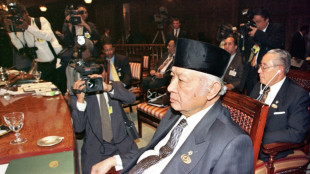 National hero proposal for Indonesia's Suharto sparks backlash
National hero proposal for Indonesia's Suharto sparks backlash
-
Indian great Ashwin out of Australia's BBL after knee surgery
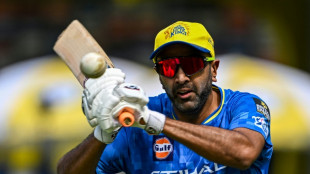
-
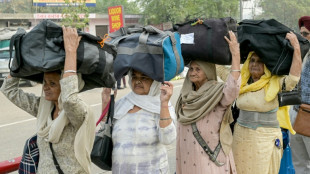 Indian Sikh pilgrims enter Pakistan, first major crossing since May conflict: AFP
Indian Sikh pilgrims enter Pakistan, first major crossing since May conflict: AFP
-
Asian markets slip as traders eye tech rally, US rate outlook

-
 Nintendo hikes Switch 2 annual unit sales target
Nintendo hikes Switch 2 annual unit sales target
-
Typhoon flooding kills 5, strands thousands in central Philippines

-
 Jobe Bellingham finding his feet as Dortmund head to City
Jobe Bellingham finding his feet as Dortmund head to City
-
US civil trial to hear opening arguments on Boeing MAX crash
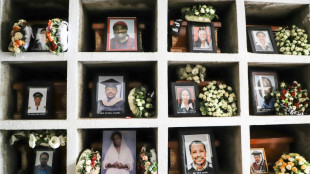
-
 Jamie Melham on Half Yours only second woman to win Melbourne Cup
Jamie Melham on Half Yours only second woman to win Melbourne Cup
-
Myanmar scam hub sweep triggers fraudster recruitment rush

-
 Biggest emitter, record renewables: China's climate scorecard
Biggest emitter, record renewables: China's climate scorecard
-
Floods strand people on roofs as typhoon pounds Philippines

-
 Asian markets swing as trades eye tech rally, US rate outlook
Asian markets swing as trades eye tech rally, US rate outlook
-
South Korea to triple AI spending, boost defence budget
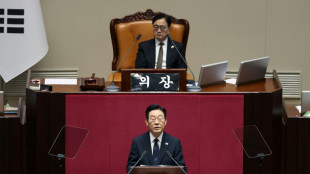
-
 Trott to leave as Afghanistan coach after T20 World Cup
Trott to leave as Afghanistan coach after T20 World Cup
-
Late queen's fashion to go on show at Buckingham Palace
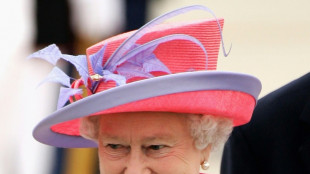
-
 In Morocco, exiled Afghan women footballers find hope on the pitch
In Morocco, exiled Afghan women footballers find hope on the pitch
-
EU scrambles to seal climate deal ahead of COP30
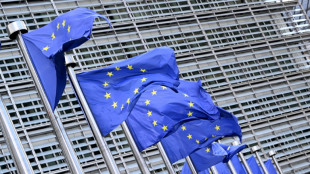

Military rank affects medical care, offering societal insights: study
Human relationships are inherently shaped by power dynamics, yet quantifying their impact has remained a scientific challenge.
Now, a large new study published Thursday in the journal Science reveals that military doctors give more attention to higher-ranked patients, providing concrete evidence about the privileges that come with elevated status, frequently at the expense of the less powerful.
"One of the things we are trying to show is that this is not a military-specific analysis," said co-author Manasvini Singh of Carnegie Mellon University, arguing the findings are just as relevant to civilian life as they are to the rigid chain-of-command structures of the armed forces.
For their research, Singh and co-author Stephen Schwab of the University of Texas at San Antonio examined 1.5 million doctor-patient encounters in the US military health service's records.
Rather than exploring how doctors might respond differently to, say, generals versus privates, they chose a more nuanced approach: comparing how soldiers of equal rank, for example two majors, were treated in emergency departments (EDs) by physicians who either outranked them or were outranked by them.
The "high-power" patients who outranked their doctors received 3.6 percent more effort and resources, as measured by tests, diagnosis and treatment codes, time spent with the physician, and opioids prescribed. High-power patients also had better outcomes, with a 15 percent lower likelihood of hospital admission in the following 30 days.
Further analysis revealed an unwitting spillover effect: low-power patients often received less attention from doctors who had just seen a high-powered patient, possibly due to the extended effort invested in the prior visit.
To ensure their results were generalizable to the population at large, the researchers considered demographic factors like age, race, and sex, which impact outcomes in wider society.
"We found if a patient walks into an ED and is assigned to a white physician who is higher rank than them, the patient is better off being white than black," said Singh.
A Black patient that outranks their white physician receives more effort than if they were lower ranked than their doctor, but still less effort than equivalent white patients. Black physicians on the other hand put in very high effort for high-ranking Black patients.
While the military's ranking system differs from civilian life, Singh argues that other factors, like increased camaraderie and kinship, could mitigate this effect.
The paper's findings even generalize beyond medicine, helping explain why Black students do better under Black teachers or why landlords are more likely to evict vulnerable tenants even when the cash value of missed payments is constant, she said.
In a related commentary, Laura Nimmon of the University of British Columbia said the research raised important questions about whether medical education sufficiently addresses status, authority, and class bias.
"Efforts remain necessary to better understand facets of power, including the failures of education and health care systems to address the myth that physicians are perfectly altruistic and not corrupted by power," she said.
S.Spengler--VB




